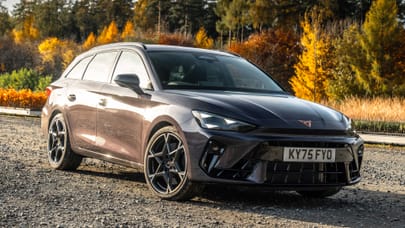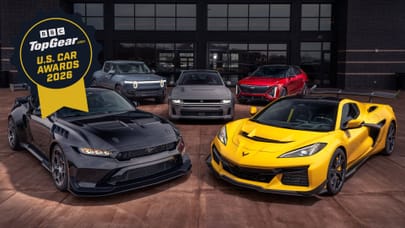
Mythbuster: are hydrogen fuel cells the future for fast track driving?
Battery-powered cars are difficult to run on a circuit, so surely fuel cells are the answer? Well...
Myth: “the future for electric track driving has to be fuel cells”
Battery powered cars present huge difficulties at racetracks. They’re heavy and they can’t do a long stint before the battery goes flat. When it does, recharging demands time and high power electric infrastructure.
So people suggest fuel cells as an alternative to batteries, to provide electricity for the motors. Bring along a tank of hydrogen on a truck, and you’ve got light cars and quick pitstops. Bingo.
Except, not quite. Fuel cells aren’t very suitable for racecars for a simple reason. They don’t run hot enough, which makes it hard to get rid of their waste heat. A high power fuel cell runs at about 80°C. On a hot sunny day the air shimmering above black tarmac can go beyond 40°C – more in hot climates. So the radiator coolant temperature isn’t much hotter than the air it’s trying to push waste heat into.
So motorsport is interested in hydrogen combustion engines. Like fuel cells, they’re zero carbon, emitting only steam. Toyota has run GR Yaris and GR Corolla cars in 24hr races, and Alpine made a V6 ICE for its Alpenglow concept which looks like it’d be at home at the sharp end of a Le Mans grid.
This solves the problem. The hydrogen engine, because it converts fuel to energy by explosions not by electrochemical reaction, runs hotter. So it’s easier to get that waste heat away. Besides, much of it doesn’t even go into the cooling system, but straight down the exhaust pipes.
None of this means fuel cells aren’t looking like a better solution for road vehicles – trucks and vans especially – versus hydrogen combustion, because here the efficiency is what really matters and fuel cells are more efficient at part power. If there does turn out to be a demand for hydrogen road fuel, it’d make it easier to find it near a racetrack of course.
You can’t just pipe hydrogen into a petrol engine, but the adaptations to make it work are straightforward. And hydrogen tanks are lighter than batteries, so the final ICE hydrogen car ends up packaged pretty similarly. It also behaves similarly, so drivers will feel comfortable with it. You don’t have to manage regen like in an electric racer. And fans will love it. EV racers make an unattractive whine, and you can’t hear how hard the driver is leaning on the power as it comes out of a corner. An ICE hydrogen car sounds like a petrol one.
Top Gear
Newsletter
Thank you for subscribing to our newsletter. Look out for your regular round-up of news, reviews and offers in your inbox.
Get all the latest news, reviews and exclusives, direct to your inbox.
Trending this week
- Car Review
BMW 1 Series








